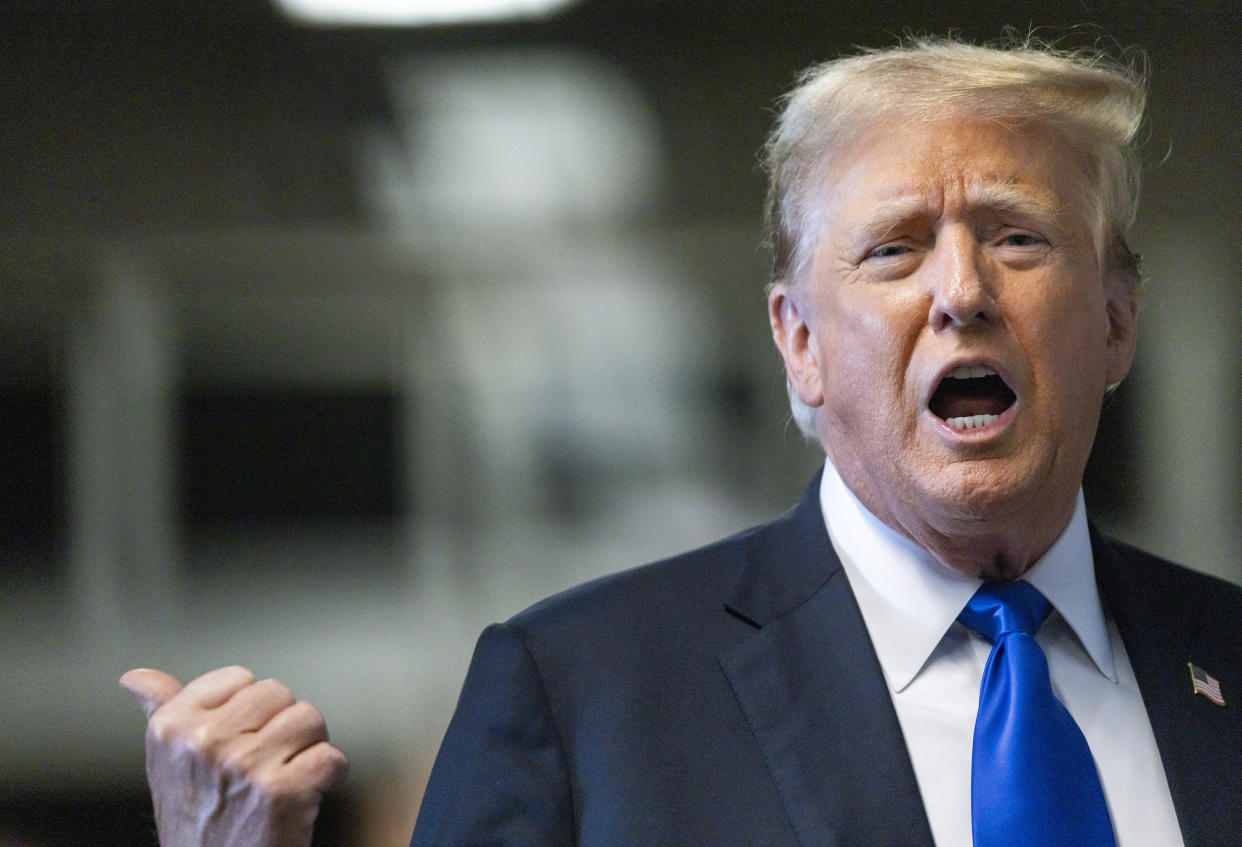Judge delays Trump hush money sentencing in wake of Supreme Court immunity decision

NEW YORK — Donald Trump’s sentencing for his hush money case has been pushed back to September following an indication Trump’s lawyers will ask to set aside the former president’s conviction in light of Monday’s stunning Supreme Court ruling on presidential immunity.
The sentencing, previously scheduled for July 11, will be delayed until at least September 18, Justice Juan Merchan wrote Tuesday — potentially pushing it to just weeks before the election in November.
Merchan is set to rule on Trump’s motion to set aside the verdict September 6. The sentencing, “if such is still necessary,” Merchan wrote, is expected to happen around two weeks later.
Lawyers for Trump indicated in a letter that Trump’s conviction should be tossed after the Supreme Court decision, they argued, confirmed arguments raised earlier in the case that prosecutors should have not been allowed to introduce certain pieces of evidence.
Tweets the former president posted while president, including posts where he spoke about how Michael Cohen would not “flip,” ethics filings and call records from when he was in office, and the testimony of former campaign spokeswoman Hope Hicks all fall under “official asks,” lawyers Blanche and Bove wrote.
On the stand in May, Hope Hicks broke down in tears after telling the court potentially damaging information about a conversation between her former boss and Michael Cohen.
“Mr. Trump’s opinion was it was better to be dealing with it now, and that it would have been bad to have that story come out before the election,” she testified in Manhattan Supreme Court.
Under the new Supreme Court decision, these “official-acts evidence should never have been put before the jury,” the lawyers wrote in the letter, which was made public Tuesday.
In a letter on Tuesday, the Manhattan DA’s office said they would not oppose a delay in the sentencing, and ADA Joshua Steinglass asked for a deadline of July 24 to file a response to Trump’s lawyers motion.
“Although we believe defendant’s arguments to be without merit, we do not oppose his request for leave to file and his putative request to adjourn sentencing pending determination of his motion,” Steinglass wrote.
Trump was found guilty of 34 felony counts of falsifying business records related to a hush money payment to porn star Stormy Daniels to influence the results of the 2016 election by concealing unsavory stories.
“The Trump decision confirmed the defense position that DANY should not have been permitted to offer evidence at trial of President Trump’s official acts,” his lawyers wrote in the letter.
Monday’s Supreme Court decision expanded presidential immunity to all “official acts,” providing Trump additional legal leeway as his lawyers fight his multiple criminal cases. The justices found that presidents are not immune for “unofficial acts.”
Experts were skeptical that the decision would allow Trump to do away with his conviction.
The underlying conspiracy to influence the results of the election took place before Trump was president, and repayments to Michael Cohen for paying off porn star Stormy Daniels were a “classic” example of unofficial acts, attorney Ron Kuby told the Daily News on Monday.
The sentencing was expected to be the only time the former president would face criminal accountability before the election. His other cases have faced significant delays, and his trial in Washington, D.C., where he was charged with illegally attempting to overturn the results of the 2020 election, is expected to be further delayed because of the Supreme Court decision.
Merchan is now expected to decide whether Trump will serve time behind bars in the home stretch of the campaign: The sentencing date is now scheduled for about a month and a half before election day on Tuesday, Nov. 5 — assuming there are no further delays.
Previously, Trump’s July 2023 attempt to get the hush-money charges moved to federal court was rejected by Manhattan Federal Judge Alvin Hellerstein, who wrote that the matter was simply a personal “coverup of an embarrassing event,” not an official function of the presidency.
“Hush money paid to an adult film star is not related to a president’s official acts,” Hellerstein wrote in the ruling. “It does not reflect in any way the color of the president’s official duties.”

 Yahoo News
Yahoo News 
